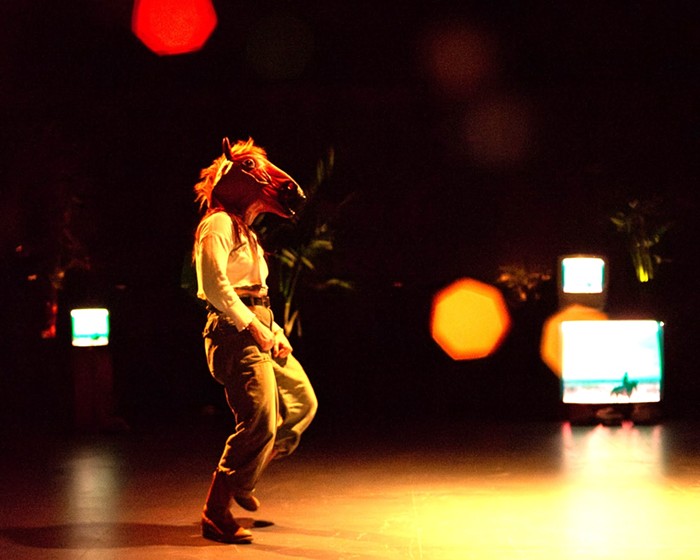Imago Theatre, 231-9581
Through Oct 15
Finally, an intellectually challenging, brilliantly conceived production of an important play exists here in Portland. The only problem is that the show's not new. Imago first mounted this adaptation of Jean-Paul Sartre's No Exit a couple of years ago. But the production was so clever, there was simply no way the company couldn't revive it. And so they have.
The plot is simple (though arguably there is little of Sartre's famous existential philosophy actually in the thing). Three recently dead people are ushered seriatim into hell by a cackling valet (Michael Vertlieb). First there is Garcin (Jerry Mouawad), a Rio journalist with cowardice issues. Then there is Inez (Marc Weaver), a lesbian with a mean streak. Finally, there is Estelle (Carol Triffle), a woman with a terrible secret in her past.
Hell, it turns out, consists of a hotel room where one spends the rest of eternity driven crazy by the machinations of the others in the room. After all, Hell, as Garcin shouts in the play's most famous line, is other people. Even more so, Imago has imagined further structural analogs of Hell's uncertainty. The big square floor of the set is built in such a way as to tilt when imbalanced by the presence of an actor. Like a raft in the sea, any movement causes a shift in weight that throws the opposite end into the air.
Thus, the characters are engaged in a dance that essentially keeps them separate; togetherness requires slow, intricate movements. Imago's conceptual take on Sartre's play is nothing less than brilliant, and it's difficult to think of any other work that might benefit from this unique staging (O'Neill's Strange Interlude, perhaps?).
But nothing's perfect. Imago's unique physical, almost dance-oriented approach to the text essentially adds an extra half hour to the play's running time, which drags out some moments that should be taut. This is also a terribly long time to sit in the cramp, ungiving seats of the Imago Theatre. And as much as I admire Mouawad's work, I'm not sure why he chose to adopt a rough, dock-side tough-guy's voice for the part of a cowardly, word-manipulating intellectual. This idea, to one auditor at least, only serves to give the line-readings a quality of falseness. But really these are minor, arguable quibbles that should in no way diminish Imago's achievement in realizing a work of profound importance.


















